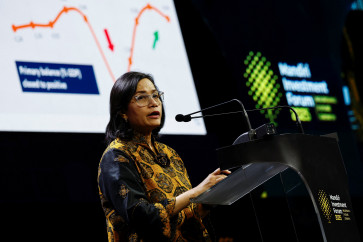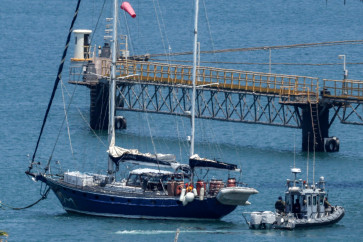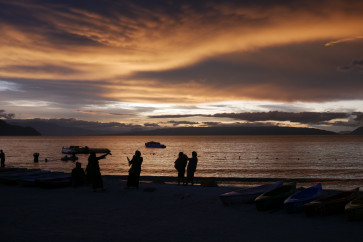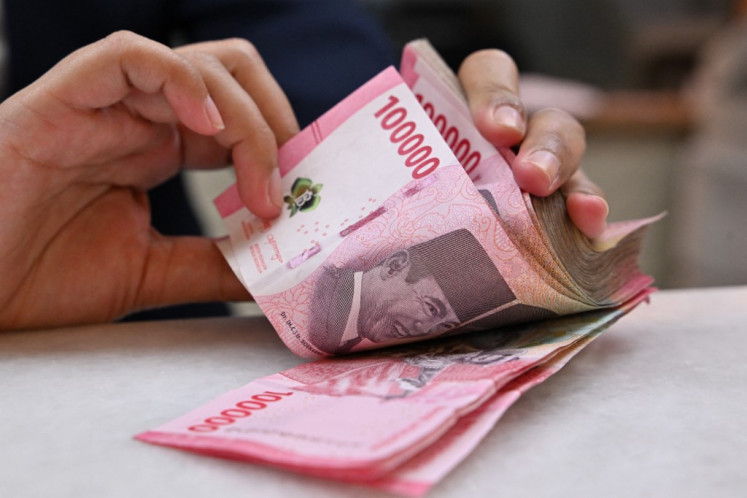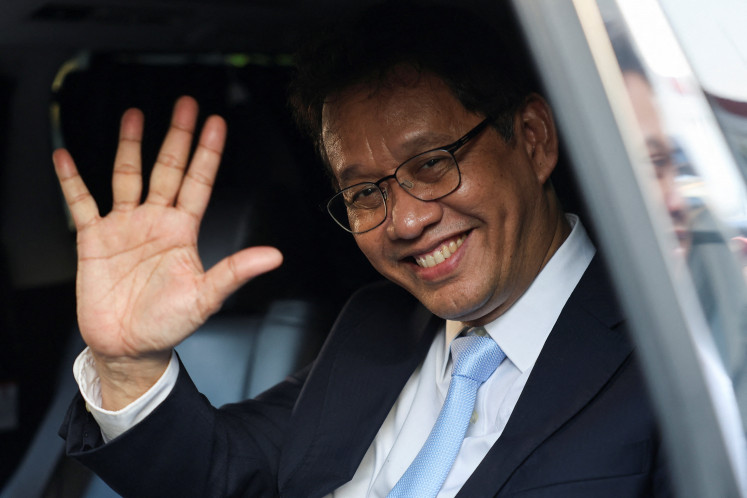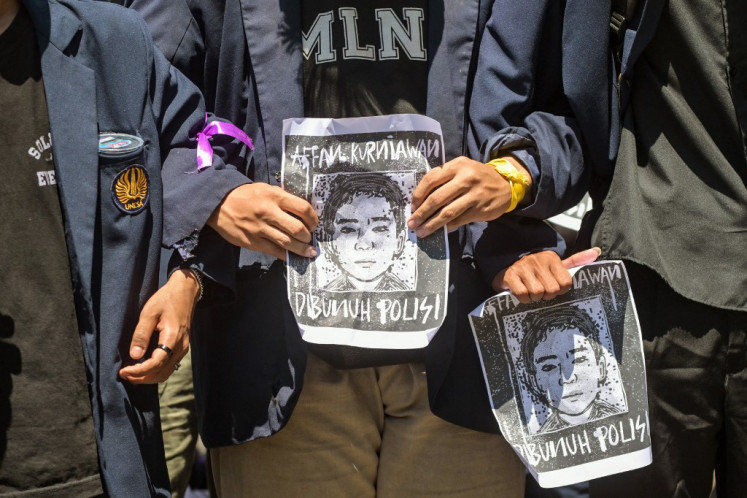Popular Reads
Top Results
Can't find what you're looking for?
View all search resultsPopular Reads
Top Results
Can't find what you're looking for?
View all search resultsAntonius Agus Sriyono: Pancasila and much ado about Islam
It’s deep winter
Change text size
Gift Premium Articles
to Anyone
I
t’s deep winter. Another cold front is rolling across the South Pacific and nothing escapes. Flooding is widespread. Landslips close roads. Aircraft have been grounded.
But not the Air Nelson flight that bumps down between rainsqualls at Napier airport after 55 minutes churning from Wellington.
The plane is a Bombardier; today it’s a flying washing machine.
Indonesian Ambassador Antonius Agus Sriyono is hustled into a car by an effervescent Ken Aldred, chair of the local NZ Institute of International Affairs. He’s a former British arms control negotiator determined that distance from Westminster is no bar to staying close to global affairs.
Today his members want to hear about democracy in Indonesia. Host and guest snatch a café sandwich. There are no staff to carry bags, drive or advise.
Despite the weather by 2 p.m. the basic Havelock North Club has a crowd of 60 (“and most over 60,” quips Mr Aldred) — but that doesn’t mean they’re ill informed or indifferent.
There’s a chattering of former diplomats, academics and senior government officials who’ve swapped Wellington, Whitehall and Washington for the lush NZ East Coast.
They’re here to make wine, breed livestock or just enjoy the rustic lifestyle — but these folk aren’t rustics. Joints creak, but synapses are supple.
Fortunately Sriyono is a liberal Catholic; others might have found the bar and 10 slot machines an uncomfortable environment for a speech by a senior government official, particularly during Ramadhan.
“Most Indonesians believe that the individual exists in the context of his family,” says the speaker flicking through the power points. “The family is the building brick of society.
“There are cultural differences between Western and Indonesian society. These differences have implications on their respective understanding of democracy.”
The listening is serious. There’s no post-lunch dozing or surreptitious cellphone thumbing. Then the questions fly.
Why is it so difficult to book internal flights in Indonesia using the Internet, asks a man keen to plan his own tour.
The question puzzles. Ambassadors have staff for such tasks. There are new direct flights from Auckland to Denpasar, but that’s not the point. Indonesians use travel agents and don’t trust Internet payments, while Kiwis are DIY (do it yourself) people. A neat illustration of cultural differences.
Is democracy taught in Indonesian schools? “Yes, but people’s understanding of the word differs. I learn a lot from you regarding egalitarianism — it’s embedded in your culture and life.”
Religious discrimination? “I’ve never encountered it in community or career.”
Questions target education and religion. Do state schools teach Islam? Is Islam incompatible with modernity? How many women are in Parliament? Are Muslims driving the political agenda? Who decides who becomes a Muslim leader — are they elected? Does democracy extend to local government levels?
“I’m an atheist,” states a questioner with religious conviction. “Is tolerance taught in schools?” The man is cautioned against expressing his non-belief in public should he visit Indonesia: “I don’t think you’ll have many friends if you do.”
Colonel Andrew Renton-Green, a former intelligence director retrieved his language skills from years studying the Indonesian Army to offer thanks plus tea and biscuits. All plain and homely. This is a protocol-free zone.
Three stops while heading to the next function. Before an Indian curry a quick diversion to a second-hand bookshop for texts on democracy and history. This is Ambassadorial heaven — he’s writing two books but stresses: “Only at weekends.”
Another halt is at an Indonesian art and artefacts store. When owner Trish Dooney imported her first container a confused Javanese dispatcher addressed the goods to Fish Donut. So that’s become the shop name.
Although the NZ economy slumbers, interest in Indonesian craft has warranted a second outlet on the west coast.
Standing amongst the glittering creative richness of his hometown (he’s from Yogya, the nation’s cultural heart) Sriyono exclaims: “This makes me feel proud.”
It was an emotion that infected an evening seminar at the state-run tertiary Eastern Institute of Technology where a dozen Indonesians turned up to hear their representative speak. Among them was Leon Kamal Armond who brought his family to NZ for a better future.
They landed with two suitcases, no contacts but an excess of determination.
Now Leon and his wife are working and their two kids are getting a Kiwi education. Leon also chairs the local Indonesia Association.
Also among the 60 overcoated guests are young officials from Laos, Timor Leste, Vietnam and Cambodia, in NZ to boost their English skills. All were keen (particularly those from Myanmar) to know more about their ASEAN neighbor’s venture into this strange land called democracy
“Pancasila democracy that prevailed during president Soeharto’s time in power was an antithesis to liberal democracy and guided democracy,” says the guest speaker exercising the Republic’s newfound freedoms of expression.
“It is unfortunate that for more than three decades [Pancasila democracy] was used as a vehicle for accumulating the elites’ power. The paradox is that Pancasila democracy was manipulated by an authoritarian government.”
Here the questions are different. Is terrorism threatening Indonesian democracy? “It’s a problem, but we can manage.” Are all your difficulties inwards looking? “Yes”.
What are the major issues? “Corruption and how to maintain pluralism. If we fail to be tolerant we’re a failed state.”
Back at the hotel the Indonesians wait with parochial problems — issues of visa changes and contract clauses. Miscommunication or misrepresentation? The meeting ends just before midnight with requests for documents.
“It’s been a rewarding trip, well worthwhile to spend time out of Wellington at the grassroots,” said Mr Sriyono. His hosts, sipping the region’s fine wines were equally upbeat. “People here really want to know more about Indonesia.”
The author travelled courtesy of the Indonesian Embassy.


